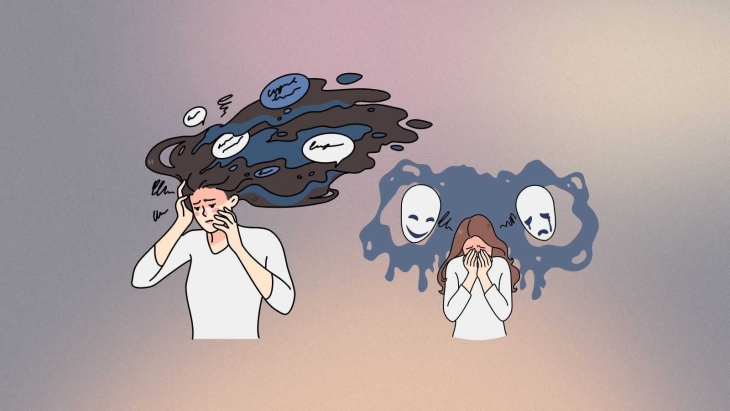Recent Posts
Most Popular
5 things I wish I knew sooner about Borderline Personality Disorder

Celebrity, comedian, and Saturday Night Live regular Pete Davidson recently talked about his struggle with mental health. Davidson is thought to be a very relatable personality on and off screen because he is vulnerable about his life experiences including how his childhood trauma of losing his firefighter father during the September 11 attacks still haunts him to this day.
Also, he talked about his diagnosis of depression and borderline personality disorder (BPD). According to him, his diagnosis was a pivotal moment in his life as it helped him understand what he has been going through since he was a teenager. It was like a weight off his shoulders, he says in a radio interview in 2020 .
BPD is a mental illness that affects a person’s personality. Symptoms of BPD vary in intensity and can be clustered in 4 areas:
- Instability in emotions, also called affective dysregulation
- Disturbances or distortions in patterns of thinking or perceiving things
- Impulsive behavior
- Intense, but unsteady relationships
Studies show that there is no clear cause of BPD, only that it may be a combination of life experiences such as childhood trauma or neglect and genetic factors.
Oftentimes, people with BDO also experience an accompanying mental illness or behavioral problems such as depression, abuse of substances, eating disorders, Generalized Anxiety Disorder or another personality disorder.
What are key things we should know about borderline personality disorder (BPD)?
- BPD is treatable.
There is a misconception that since BPD is a personality disorder and our personalities do not change, there is no hope for BPD.
Nowadays, medical and psychiatric treatment have been developed to help a person with BPD control symptoms and live a more stable life. Some treatment methods include dialectical behavior therapy (DBT), transference-focused psychotherapy (TFP) and general psychiatric management (GPM).
- BPD affects men and women almost equally.
Previous studies have found that women have a higher rate of developing BPD, but the probability is that women tend to seek professional help and get diagnosed more than men. In addition, BPD is often underdiagnosed in men as they are more likely to be diagnosed with post traumatic stress disorder (PTSD) or depression.
As a result, men with BPD do not get the treatment they need or may receive the wrong treatment. Studies show that because of the behavioral problems in BPD leading to anger and aggression towards others, men with BPD who do not get treatment end up in prison. In fact, studies in the US show that 1 in 5 males in prison may have BPD.
- One of the differentiating symptoms of BPD is the fear of abandonment.
The general public often confuse BPD with another personality disorder like bipolar disorder. Because there are distortions in thinking patterns, a person with BPD might feel that their loved ones would end up abandoning them, and this makes them feel misunderstood and angry. There is a very high tendency to mistrust others thinking that others are out to hurt the person with BPD.
The relationship pattern of a person with BPD is very unstable as there is a tension between wanting to be close and the fear of being abandoned.
- Because of the overwhelming emotions of fear and anxiety, people with BPD often have a history of alcohol or drug misuse or engaging in reckless behavior to try to cope.
As a result, episodes of threatening to or actually harming self or others may be a result of overwhelming feelings of being lonely or rejected, helplessness, self-hatred or anger towards others.
- Getting help and cultivating a healthy lifestyle and a supportive community is essential.
A person with BPD is not alone in their experience. BPD affects millions of people in the US, and being able to connect with a support group and to get help from a professional mental health worker will help a person with BPD learn how to manage symptoms.
During therapy, one can learn to identify and manage the situations that trigger the BPD symptoms. In therapy, one can be equipped with healthy coping skills to cope with overwhelming emotions.
Life does not have to be like a roller coaster ride of intense stress and unmanageable feelings. Seek the support you need and start working on recovery.
Discover rewarding healthcare and mental health jobs across the nation and start a career in the medical field!








Comments